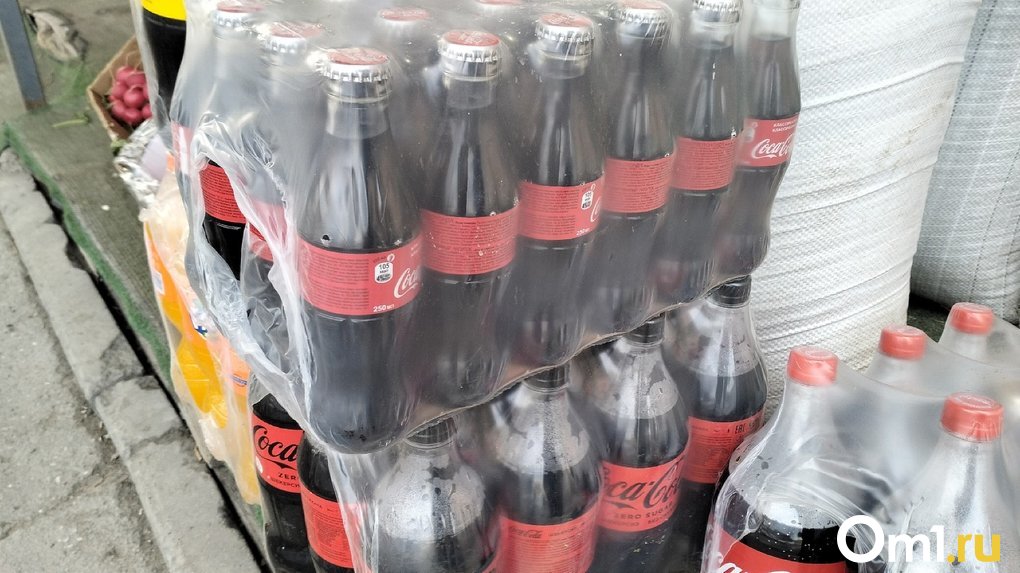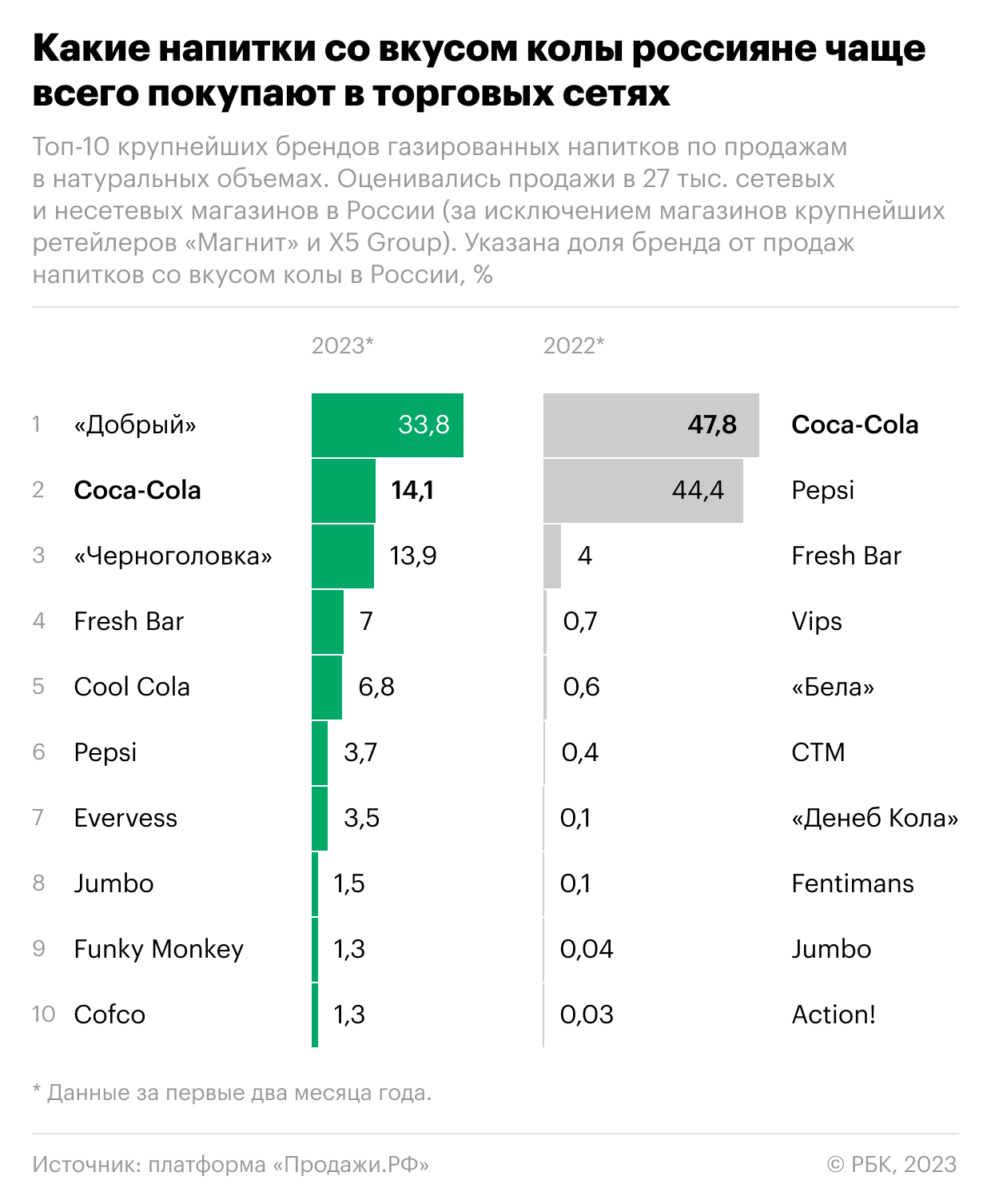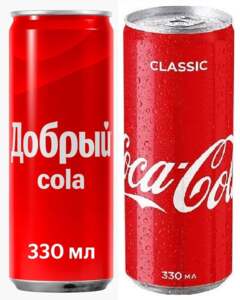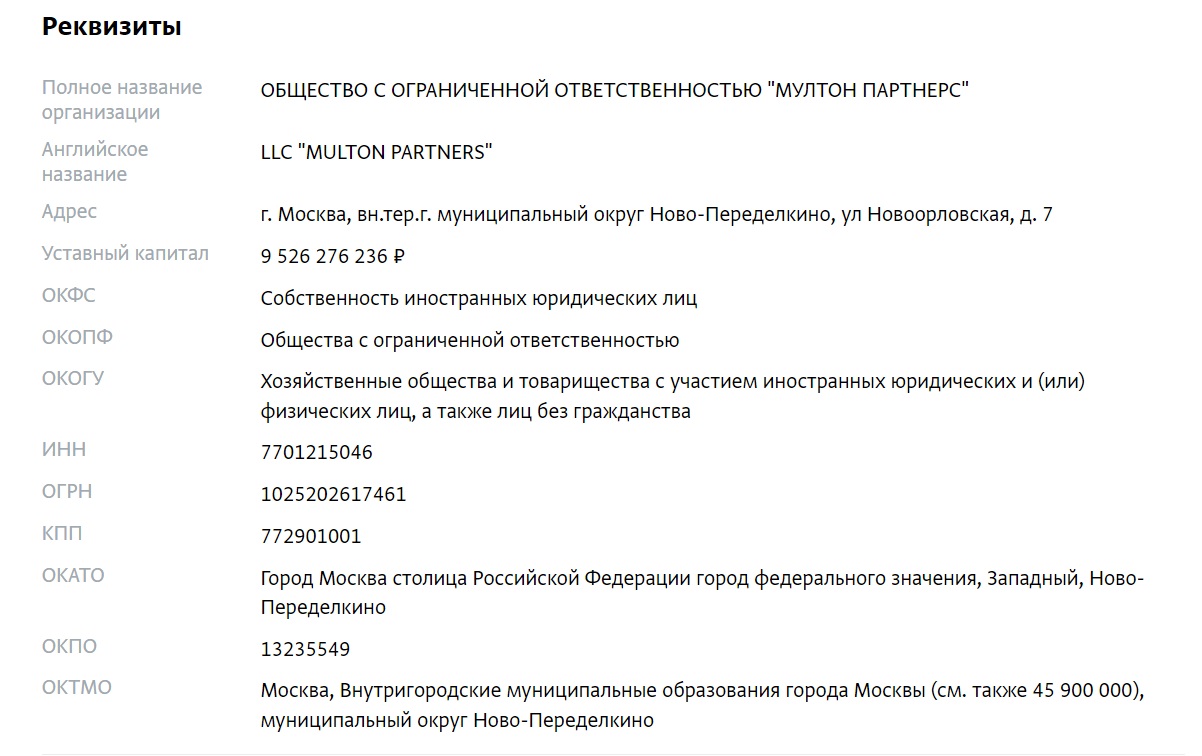Global giant producing Coca-Cola retains leading role on Russia's market of cola-flavoured drinks
In the first two months of 2023, Coca-Cola sales in the cola market reached 14.1 per cent in Russia, compared to 47.8 per cent in January and February 2022. Dobry Cola, a new product produced by Multon Partners, the Russian subdivision of Coca-Cola, achieved a market share of 33.8 per cent.
For example in St. Petersburg, where the editor of Tinkoff Magazine lives, nearly every convenience store sells original Coca-Cola. The soft drink is also sold on the Yandex-Lavka and Samokat online marketplaces, says the author from Tinkoff. As V4NA highlighted earlier, several Coca-Cola products are also available on Yandex Market. In Novosibirsk, for instance, the wide range of Coca-Cola products comes from a Kyrgyz factory, as reported by om1.ru.

Besides the classic and sugar-free Coca-Cola products, other drinks were also found in several flavours. One reader shared photos taken in the Zaeltsovsky district in Novosibirks, econimist.kg wrote.
In March 2022, the world’s largest producer of carbonated beverages, the Coca-Cola Company, decided to suspend production in Russia in the wake of the special military operation in Ukraine. In August, the bottler warned that once stocks run out, Coca-Cola HBC Eurasia (Coca-Cola’s Russian division) would no longer produce and distribute them in Russia. Instead, the firm would shift the focus to local brands such as Dobry, Rich, Moya Semya. At the end of July, Coca-Cola HBC Eurasia changed its name to Multon Partners, and launched an analogous Coca-Cola product called „Добрый кола” („Dobry Cola”) or „Good Cola”, rbc.ru reported. As shown by the table below, this brand now has a 33 per cent share in the Russian market. Although several sources tried to find out what kind of syrup is used as the basic ingredient of Dobry Cola, they could only conclude that it was NOT identical with the Coca-Cola syrup. However, several analysts admit that a significant similarity exists between the two beverages.

By the way, the packaging is also visibly similar.

„We received a notification from Coca-Cola that the drink which used to be Coca-Cola will now be called Dobry Cola. We’ll try to sell it,”
Mikhail Goncharov, the founder of the Teremok fast food chain, told a press conference, according to the Interfax news agency.
In other words, the founding manager of the Termok restaurant chain revealed that Coca-Cola clearly informed them that the soft drink previously sold under the Coca-Cola name will be marketed as Dobry Cola in the future.
Now let’s devote a few words to the company that’s changed its name and now covers a third of Russia’s cola market. As mentioned above, Coca-Cola HBC Eurasia was renamed Multon Partners. And what else has changed in the company? Tinkoff Magazin provides the answer. After the name change last summer, the management remained with the local executives. However, Coca-Cola did not withdraw capital from the company, the firm merely announced that it had reduced activities in Russia to a minimum and ceased investments and all deliveries.

This means that Dobry Cola’s 33-percent share in the cola market partly goes to Coca-Cola, as the owner of Multon Partners, and this should be combined with the 14-percent market share of the Coca-Cola product. This 14 per cent is referred to by several sources as “parallel import.” They say that Coca Cola has notified all plants to stop selling Coca-Cola products on the Russian market. Most Coca-Cola products, however, were transported to Russia from Turkey in 2022 based on the official customs declarations, Vpost writes. In 2022, at least 55 declarations have been issued for bulk sales from Coca-Cola’s Istanbul and Bursa factories for imports from Turkey to Russia. The second largest source was Azerbaijan, with importers having received 20 declarations for beverages produced at the Baku plant. Next up are Uzbekistan, Iran and Kyrgyzstan, in approximately equal orders of magnitude – with more than 13 declarations from each country. They were followed by Georgia, with over 10 declarations, not only for international brands such as Coca-Cola and Schweppes, but also for mineral water drinks produced by the local Coca-Cola plant.
Imported Coca-Cola drinks are significantly more expensive than Dobry Cola, which is produced at the plants of Multon Partners (earlier Coca-Cola HBC Eurasia), owned by Coca-Cola HBC Holding. Dobry Cola, the new Russian brand, is available on the Russian market in the price range of the former Coca-Cola brand. If we take a closer look at the chart, we see that the share of Coca-Cola company on the Russian market has not decreased, but increased by a few percentage points. Previously, Coca-Cola’s soft drinks had a market share of 47.8 per cent. In the situation unfolding because of the war, Coca-Cola becomes the second largest player on the market with 14.1 per cent, while Dobry Cola – taking first place with 33.8 per cent – has met the expectations of Multon Partners, owned by Coca-Cola HBC Holdings BV. If we add 14.1 per cent to the 33.8 per cent, we get 47.9 per cent, compared to the previous 47.8 per cent.
To attach concrete numbers to the percentages, we have to go back to the year 2021, the last year before the war. Then, the amount of Coca-Cola beverages produced in Russia grew by 24 per cent to 2.86 billion litres, tadviser.ru reports.
When an American living in Siberia explained this from his own perspective, dzen.ru took notice. He said “what people need to understand is, nobody’s going to stop selling into the Russian market, because it’s such a large market. There’s many Russians who enjoy drinking coke and Coca-Cola knows that.”
And now let’s see some of the comments under the video:
A user called Igor writes: “Sanctions against Russia brought 2 results: 1) Coca-Cola has changed its labels 2) Russians are now united and fell i love with Putin.”

Tom writes: “I remember questions that were asked by foreigners on how could Russians live without McDonald’s. That was hilarious to hear those questions. Firstly, McDonald’s was changed to Tasty and that’s it. Secondly, Burger King and KFC didn’t leave Russia and keep working. Basically, we didn’t feel the change. I remember one of the comments from a guy from the US. He wrote: ‘You can’t change McDonald’s, because McDonald’s equals freedom’. LMAO Really? Since when junk food became equal to freedom?” he asked the rhetoric question.

Yet another comment reads:
Only after the sanctions have I learned that PlayStation games in Turkey are around 2,5 times cheaper than what they used to cost in Russia.

Tags:

